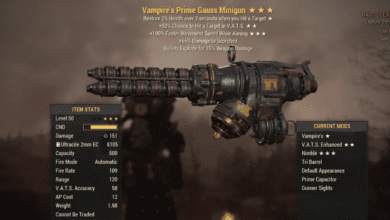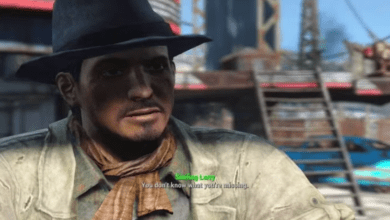Fallout 4’s Moral Dilemma: Should You Help Dr. Brian Virgil Find a Cure?
Key Takeaways:
- Fallout 4’s character-driven narratives, like Dr. Virgil’s quest, bring ethical complexity to the gameplay, challenging players to consider moral consequences.
- Dr. Virgil’s past as an Institute scientist involved in unethical experiments on Commonwealth residents casts doubt on whether he deserves redemption.
- Choosing to help or deny Virgil his cure can alter the storyline, impacting how companions react and the game’s exploration of redemption and accountability.
Fallout 4 immerses players in a post-apocalyptic world filled with morally complex characters. Among the most compelling figures is Dr. Brian Virgil, a former Institute scientist who plays a key role in the Sole Survivor’s journey to locate Shaun. Virgil’s backstory, transformation, and personal quest “Virgil’s Cure” pose difficult moral questions, especially given his controversial involvement with the Institute’s Forced Evolutionary Virus (FEV) experiments.
If you’ve ever wondered whether Virgil is worth saving, this deep dive explores every aspect of his character and the profound impact of your choices in his quest.
Who Is Dr. Brian Virgil in Fallout 4?
Dr. Brian Virgil, once a scientist for the Institute, holds valuable knowledge about the Institute’s inner workings. However, when the Sole Survivor first encounters him in a remote cave in the Glowing Sea, they’re met not with a fellow human, but a towering Super Mutant. Virgil’s shocking transformation is no accident; he altered himself using the very virus he once studied. This drastic decision reflects his desperation to evade the Institute, especially their deadly Coursers, and remain hidden in a region so hostile that only few could survive its radioactive storms.
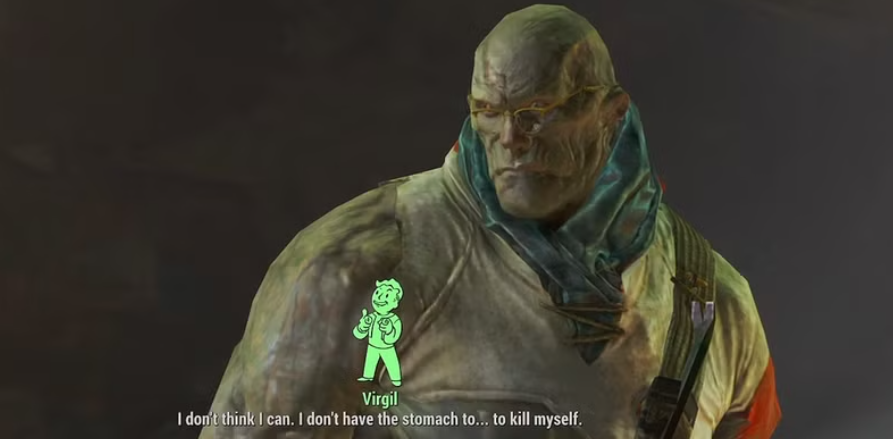
Virgil’s shift from scientist to fugitive Super Mutant immediately raises questions about his character and motivations. Why would a man of science willingly subject himself to such a monstrous transformation? To answer that, one must understand his involvement with the Institute’s disturbing FEV research.
Why Did Virgil Flee the Institute?
Virgil’s past in the Institute is riddled with ethical quandaries, particularly due to his role in the FEV project. The FEV, or Forced Evolutionary Virus, was used in horrific experiments to develop the powerful Gen 3 Synths biologically enhanced humanoid robots. These experiments relied on Commonwealth residents, often kidnapped and subjected to cruel tests without consent. When Virgil took charge of the project in 2286, he quickly became disillusioned by the needless suffering inflicted on these innocent lives.

In a bid to end the unethical research, Virgil appealed to Father, the Institute’s leader, to shut down the FEV project. But when his pleas fell on deaf ears, Virgil took matters into his own hands. He destroyed the FEV lab, a direct act of defiance that forced him to flee the Institute to avoid their wrath. Ultimately, his transformation into a Super Mutant was both a means of survival and a tragic consequence of his own research.
The Moral Dilemma: Should Virgil Receive a Cure?
Once the Sole Survivor learns about Virgil’s location, the main quest in Fallout 4 leads to “The Glowing Sea,” where players can choose to either support or deny Virgil’s plea for a cure. This decision goes beyond gameplay mechanics, forcing players to grapple with Virgil’s controversial past.
Reasons to Deny Virgil the Cure
Choosing to withhold the cure can feel justified to many players. After all, Virgil spent years working on the FEV project, which directly harmed countless Commonwealth residents. The experiments he once participated in were brutal, robbing innocent people of their autonomy and humanity.
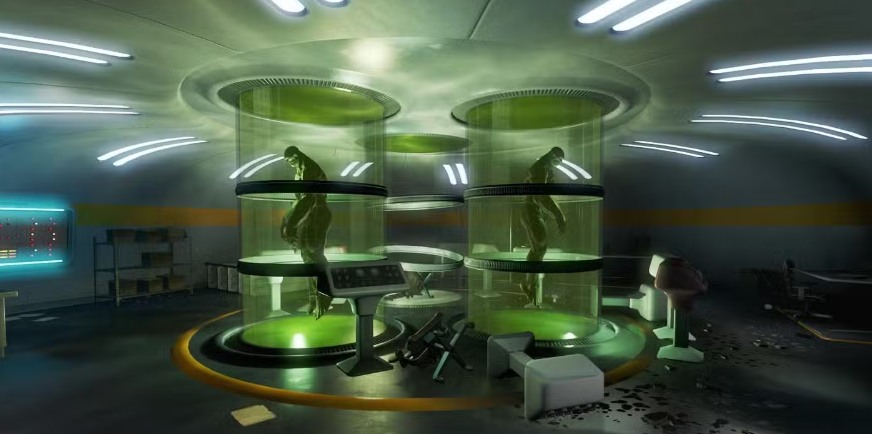
Some Fallout 4 factions, such as the Brotherhood of Steel, may even see leaving Virgil as a Super Mutant as fitting retribution. If the Sole Survivor is sympathetic to the Brotherhood’s anti-mutant stance, or simply feels Virgil deserves to face consequences, denying him the cure might be the most rational choice. In fact, some companions, like Strong, actually approve of denying Virgil the cure, while others, like Paladin Danse, find justice in allowing him to suffer the outcome of his own science.
Additionally, Virgil himself expresses a dark willingness to end his life if the cure is not given. Players have the choice to honor this request, or in one of Fallout 4’s most unsettling options, persuade Virgil to take his own life, highlighting the moral ambiguity inherent to the game.
Reasons to Help Virgil Find Redemption
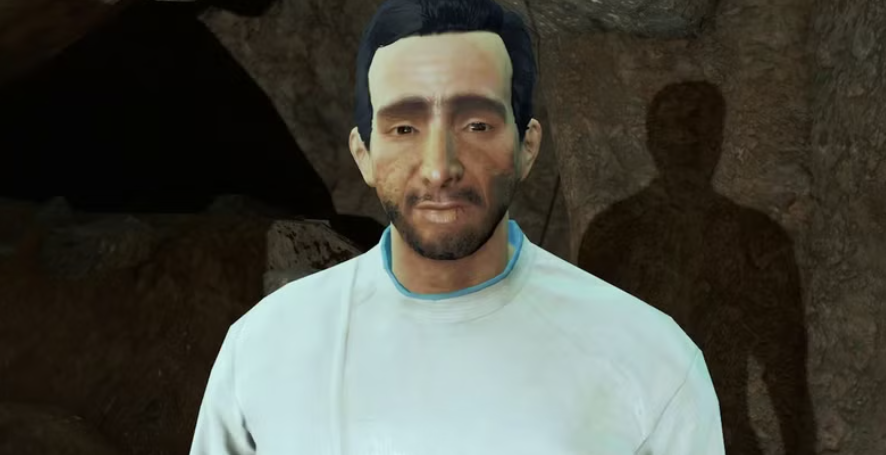
On the other hand, helping Virgil offers a different path. In exchange for aiding the Sole Survivor in reaching the Institute, Virgil asks for help locating an experimental serum he crafted as a potential cure for his mutation. When found, this serum allows him to slowly revert to human form over the course of 72 in-game hours, sparking his hope of redemption and the chance to contribute positively to the Commonwealth.
Virgil’s genuine regret over his role in the FEV experiments is evident in the logs he left behind in the lab, where he expresses disillusionment and horror at the senseless cruelty. By assisting him in his quest for a cure, the Sole Survivor essentially gives Virgil the opportunity to make amends for his past, potentially leading to further discoveries that could benefit the Commonwealth.
Though the reward for helping Virgil is minimal in terms of in-game perks, curing him aligns with the values of compassion and second chances, allowing players to see a storyline where redemption is possible.
Fallout 4 Companions’ Reactions to the Decision
As with many choices in Fallout 4, the Sole Survivor’s decision about Virgil impacts their relationship with their companions. Each companion reacts according to their background and beliefs, offering players a new perspective on the ethical weight of this quest.
For example:
- Strong approves of leaving Virgil as a Super Mutant, as he sees his kind as naturally superior and would prefer Virgil not revert to a “weaker” human form.
- Paladin Danse approves of denying Virgil the cure due to his loyalty to the Brotherhood’s anti-mutant stance.
- Curie may sympathize with the idea of curing Virgil, as she values life and scientific exploration that benefits humanity.
The Consequences of Helping or Denying Virgil
The outcomes of this quest vary significantly based on the player’s choice:
- If Denied the Cure: Virgil will either die by the Sole Survivor’s hand, become hostile, or, if convinced, take his own life. Players can loot his personal weapon, “Virgil’s Rifle,” and any remaining supplies in his cave.
- If Cured: After 72 in-game hours, Virgil returns to human form, sharing a sense of relief and remorse for his actions. Though he won’t follow the Sole Survivor as a companion, he expresses a desire to find a broader cure for the Commonwealth’s Super Mutant population, potentially affecting Fallout lore in future installments.
Fallout 4’s Complex Morality: Reflection on the Fallout Franchise
Virgil’s story encapsulates the depth of Fallout 4’s character-driven narratives, reminding players that actions have consequences. The decision to help or deny Virgil transcends simple gameplay mechanics, offering a layered exploration of accountability, redemption, and the impact of scientific hubris on the individual.
In a game that routinely forces players to weigh morality against survival, “Virgil’s Cure” is a haunting reminder that even in a wasteland, hope for redemption can exist. Whether players choose to offer Virgil his second chance or let him live with his monstrous reality, Fallout 4 captures the human experience in all its messy, imperfect glory.
FAQ
1. Can you find Virgil without starting “The Glowing Sea” quest? No, Virgil’s storyline only becomes accessible through “The Glowing Sea” quest, which is part of the main story arc in Fallout 4.
2. Does curing Virgil impact other Super Mutants? Virgil’s cure is specific to his unique mutation strain, so it won’t work on other Super Mutants in Fallout 4. However, Virgil’s expressed desire to research a broader cure hints at potential future storylines.
3. Are there any gameplay rewards for curing Virgil? Curing Virgil does not yield significant in-game rewards beyond looting his equipment and using his cave as a base. The real benefit lies in the narrative satisfaction of potentially redeeming a morally conflicted character.
4. How do factions react to Virgil’s cure quest? Factions don’t directly react to Virgil’s cure, but their ethos might influence how players feel about curing him. For instance, the Brotherhood of Steel’s anti-mutant philosophy might discourage aiding Virgil.
5. What happens if you revisit Virgil’s cave after denying him the cure? If you revisit the cave later, Virgil will either be dead or hostile, depending on your earlier choices.
